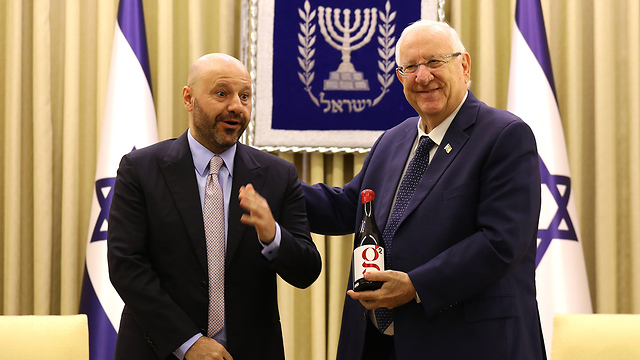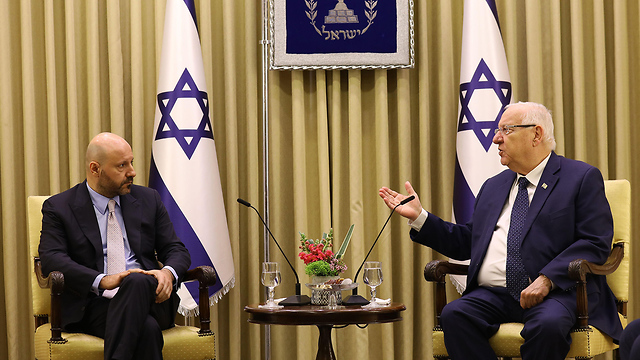President Reuven Rivlin on Sunday hosted a Lebanese-born Swiss real estate mogul who purchased Nazi memorabilia at a German auction and is donating the items to Israel.
Abdallah Chatila, a Lebanese Christian who has lived in Switzerland for decades, paid some 600,000 euros for the items at the Munich auction last month, intending to destroy them after reading of Jewish groups' objections to the sale. Shortly before the auction, however, he decided it would be better to donate them to a Jewish organization.
At a press conference held at Rivlin's residence, Chatila said he initially bought the items for personal reasons.
"He [Hitler] is the personification of evil - evil for everyone, not evil for the Jews, evil for the Christians, evil for humanity," Chatila said. "And that's why it was important for me to buy those artifacts."
Chatila then determined that he had no right to decide what to do with these artifacts, so he reached out to Keren Hayesod-United Israel Appeal, a nonprofit fundraising body that assists Israeli and Jewish causes. The organization then decided to pass the items on to Yad Vashem Holocaust Memorial Museum in Jerusalem to add to its existing collection of Nazi artifacts.
Among the items Chatila bought were Adolf Hitler's top hat, a silver-plated edition of Hitler's Mein Kampf and a typewriter used by the dictator's secretary.
Chatila said his donation has been criticized by some in his homeland of Lebanon which has hostile relations with Israel.
"I got a few messages saying that I was a traitor, saying that I helped the enemy and also some messages of people warning me not to go back to Lebanon," Chatila said. "It's easy for me as I don't go to Lebanon. I don't have a problem with it."
But Chatila said his parents still travel to Lebanon, making the backlash difficult for his family.
Rivlin thanked Chatila for his "act of grace" and donation "of great importance at this time" when Holocaust denial and neo-Nazism are on the rise.
"What you did was seemingly so simple, but this act of grace shows the whole world how to fight the glorification of hatred and incitement against other people. It was a truly human act," Rivlin said.
The real estate magnate also noted that the artifacts would help preserve the memory of the Holocaust for future generations who will not be able to meet or hear from the dwindling population of aging survivors.
Yad Vashem Chairman Avner Shalev also commented on the matter, saying that the Holocaust museum doesn't support possession of such artifacts by private collectors.
"Usually Yad Vashem doesn't support trade. We do not believe in trade of artifacts that come from the Nazi party or other parts," said Shalev. "We believe that [these artifacts] should be in the hands of museums or public collectors and not in private hands."
The items are still at the German auction house, and it was not immediately known when they would be transferred to Yad Vashem.



